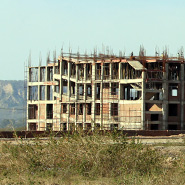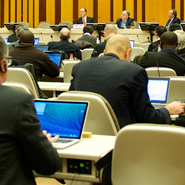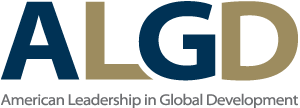 Development and Export Finance Reform
Development and Export Finance Reform
The Overseas Private Investment Corporation (OPIC) and the Export-Impact Bank (Ex-Im) provide critical finance and risk mitigation tools that benefit U.S. companies and exporters while advancing sustainable development in developing countries. ALGD members support both institutions and work together to explore ways to strengthen U.S. development and export finance to attract private-sector investment in the developing world that creates jobs and generates economic growth. ALGD members support reforming and reauthorizing OPIC and Ex-Im.
 Trade Facilitation and Trade Preference Reform
Trade Facilitation and Trade Preference Reform
ALGD members support the full adoption and ratification by WTO members of the WTO Trade Facilitation Agreement. Reducing trade costs by adopting the best practices to meet each of the Agreement commitments will empower developing WTO countries to participate in global value chains, increase foreign direct investment, and improve their competiveness. ALGD members work together to advocate for the expeditious and optimal implementation of the Agreement across WTO members. Improving trade preference programs and early and full implementation of the WTO Trade Facilitation Agreement will improve U.S. company competitiveness and advance sustainable economic development in the developing world. ALGD members support U.S. trade preference programs as well as program reforms that will spur private sector-led growth and increase utilization in beneficiary countries. ALGD members seek reforms and improvements to the programs that will assist beneficiary countries improve their commercial environments, create jobs, and achieve sustainable development.
 Procurement Reform
Procurement Reform
ALGD supports procurement reforms at leading multilateral donor agencies, as well as within developing country governments, to encourage innovation and the procurment of highest quality goods and services. To achieve maximum value and the most significant development and economic growth impact, procurement bids around the world should incorporate the highest standards of project design, transparency, quality, review, and fair bidding. Such reforms will improve the competitive position of U.S. companies by incorporating life-cycle costing and other quality criteria which U.S. companies can best meet. Moreover, high quality, transparent and fair procurement practices will maximize the development impact of these projects. ALGD members are engaging with the World Bank to contribute their private sector perspective to the Bank’s ongoing procurement review to help advance the Bank’s development mission by supporting global best practices in procurement.
 Global Infrastructure
Global Infrastructure
A global demand for infrastructure boom continues to grow in much of the developing world. Achieving high quality infrastructure improvements in the developing world continues to be a top development priority. Achieving this goal requires the most innovative technologies, highest standards of engineering, and highest quality equipment, technical expertise, and private sector participation. Poorly designed and implemented infrastructure projects, however, disadvantage U.S. engineering, construction, services and manufacturing companies from participation. ALGD members work together to explain how implementing the highest quality standards for infrastructure projects maximizes the development impact of these projects and provides a level playing field for U.S. companies to compete for these projects.
 Digital Trade Empowers Development
Digital Trade Empowers Development
The technological revolution of digital trade presents new opportunities for developing countries to compete in the global economy and better trade with their neighbors. The free flow of data across borders empowers developing countries and their companies, farmers, and workers to engage with business partners and customers in their region and around the world. ALGD members work together to explain how reforms that liberalize digital trade and encourage the free flow of data create new markets and new opportunities across the developing world. Moreover, the expansion of digital trade and data flows in developing countries attract foreign direct investment and ignite sustainable economic growth.

